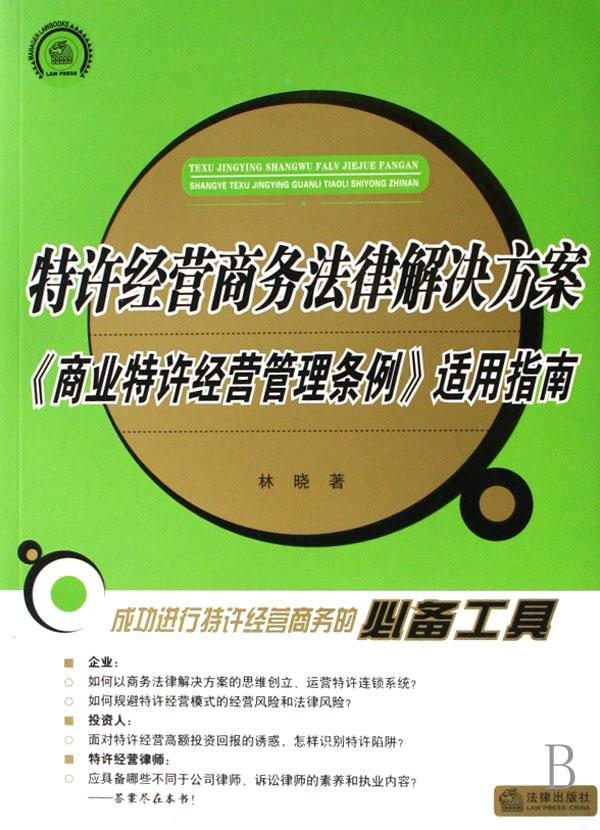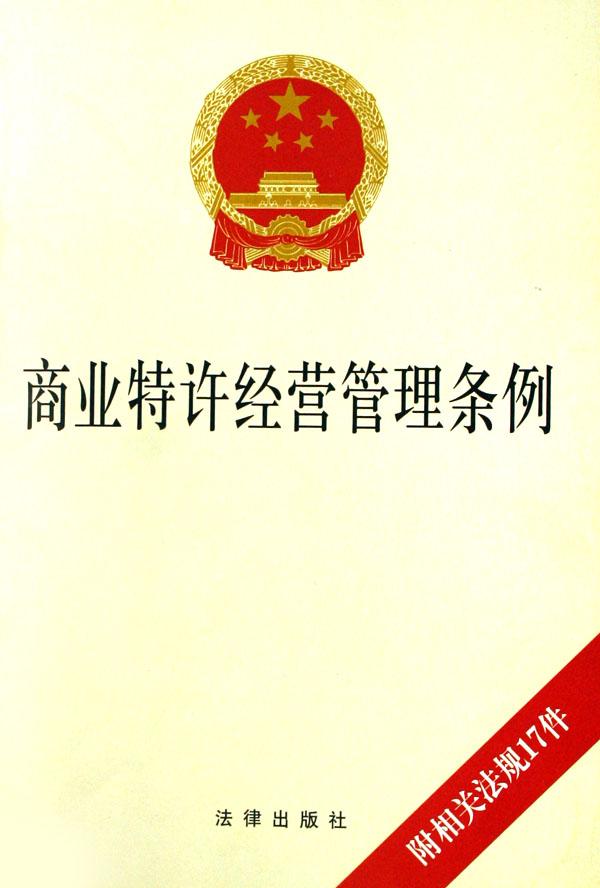【www.gbppp.com--手抄报内容】
特许经营管理办法(第25号)内容归纳总结
国家发改委于2015年4月25日发布了“一委四部加人行”(发改委、财政部、住建部、交通部、水利部和人民银行)联手“打造”的关于特许经营的管理办法,将十八大三中全会提出的“PPP”政策、法规整合、统一,旨在大力推行“PPP”、规范操作“PPP”,对各级政府部门有很强的操作指导意义,现将特许经营管理办法(第25号)内容简单总结归纳如下:
一、规定特许经营的适用范围
1、事业范围:中国境内的能源、交通运输、水利、环保、市政工程和公用事业领域;
2、经营范围:一定期限的(最长不超过30年)、投资建设运营并获得收益;
3、三种形式:建设+移交、建设+拥有+运营+移交、建设+授权运营+移交。
二、政府在特许经营活动中的职能
1、国务院各部门:政策、规章的制定和监管;
2、县级以上政府:项目实施和监管。
三、特许经营项目“七步走”
1、项目提出部门提出特许经营实施方案(第9、10条);
2、项目提出部门委托第三方机构评估(第11、12条);
3、项目提出部门会同有关部门审查实施方案(第13条);
4、县级以上政府授权实施机构负责特许经营实施(第14条);
5、实施机构招标选择特许经营者(第15~25条);
6、履行特许经营协议(第26~37条、41~53条、55、56条);
7、特许经营终止(第38~40条)。
社会资本主体根据以上“七步走”规定,可以在跟踪项目过程中给政府或有关部门提供意见和支持以推动特许经营项目进程,同时可以作为拟实施“PPP”项目的指导,部署和开展近期、远期工作。
以上内容为个人归纳,仅供参考。
刘国海 2015/5/26
Decree of the State Council of the People's Republic of China
No. 485
Regulations on Administration of Commercial Franchise has been passed by the 167th regular meeting of the State Council held on January 31, 2007, and is hereby promulgated, which shall come into effect as of May 1, 2007.
Premier Wen Jiabao
February 6, 2007
Regulations on Administration of Commercial Franchise
Chapter I General Provisions
Article 1.
Article 2.
Article 3 These Regulations are formulated with the aims to regulate commercial franchising activities, to promote the healthy and orderly development of commercial franchise, and to safeguard market order. Those who engage in commercial franchising activities within the territory of the People's Republic of China shall comply with these Regulations. Commercial franchise (hereinafter referred to as “franchise”) referred to in these
Regulations means the business activities whereby the franchisor (hereinafter
referred to as "franchisor"), through executing contracts, allows the franchisee
(hereinafter referred to as "franchisee") the use of the operational resources such
as registered trademark, enterprise logo, patent, know-how, etc. that the franchisor
owns, and the franchisee undertakes business under the unified business format in
accordance with the provisions of such contracts, and pays franchise fees to the
franchisor.
Neither entities other than enterprises nor individuals may engage in franchising
activities as franchisors.
Franchising activities shall be conducted in compliance with the principles of free
will, fair dealing, honesty and good faith.
The competent commercial authority of the State Council is in charge of the
supervision and administration of nationwide franchising activities in accordance
with these Regulations. The competent commercial authority of the people's
government of each province, autonomous region and municipality directly under
the Central Government, and the competent commercial authority of the people's
government of each city with districts are in charge of supervision and
administration of franchising activities within their respective administrative
divisions in accordance with these Regulations. Article 4 Article 5
Article 6 Any entity or individual shall have the right to report to the competent
commercial authority acts in violation of these Regulations. Upon receiving the
report, the competent commercial authority shall deal with such acts in a timely
manner in accordance with law.
Chapter II
Article 7
Article 8 Franchising Activities A franchisor engaged in franchising activities shall own a well-developed business format and has the capabilities of to continuously provide operational guidance, technical support, business training and other services to the franchisee. A franchisor engaged in franchising activities shall own at least two directly-operated outlets, and shall be in operation for more than one year. Within fifteen days after the execution of the initial franchise contract, a
franchisor shall file with the competent commercial authority for record in
accordance with the provisions of these Regulations. Where the franchisor
engages in franchising activities within the territorial scope of a province,
autonomous region or municipality directly under the Central Government, it
shall file with the competent commercial authority of the people's government of
the concerned province, autonomous region or municipality directly under the
Central Government where it is located; and where the franchisor engages in
franchising activities across the territorial scope of a province, autonomous region
or municipality directly under the Central Government, it shall file with the
competent commercial authority of the State Council for record.
When filing with the competent commercial authority for record, a franchisor
shall submit the following documents and materials:
(1)
(2)
(3)
(4)
(5)
(6)
A duplicate copy of its Business License or of its enterprise registration (filing) certificate; A sample franchise contract; Franchise operation manuals; A marketing plan; A written undertaking and relevant substantiating materials showing that the franchisor meets the requirements set forth in Article 7 hereof; Other documents and materials as stipulated by the competent commercial authority of the State Council.
Where the products or services offered by the franchised business are subject to
approval as required by law, the franchisor shall also submit the relevant approval
documents.
Article 9 Within ten days after the competent commercial authority has received the
documents and materials submitted by the franchisor which comply with the
provisions in Article 8 of these Regulations, it shall make such filing for record
and notify the franchisor of such record. Where the documents and materials
submitted by the franchisor are incomplete, the competent commercial authority
may request the franchisor to submit supplementary documents and materials
within seven days.
The competent commercial authority shall publish the name list of the franchisors
already filed for record on the government website and keep it updated in a timely
manner.
A written franchise contract shall be entered into by the franchisor and the
franchisee for engaging in franchising activities.
A franchise contract shall include the following main contents:
1)【特许经营管理条例】
2)
3)
4)
5)
6)
7)
8)

9)
10)
11) basic information of the franchisor and the franchisee; contents and duration of the franchise; types, amounts and payment methods of the franchise fees; specific contents and provision methods of the operational guidance, technical support, business training and other services; quality and standards requirements, as well as guarantee measures, for the products or services offered by the franchised business; promotion and advertisement of the products or services offered by the franchised business; arrangements for protection of consumer rights/interests and undertaking of liability for compensation in the franchising activities; amendments, rescission and termination of the franchise contract; liability for breach of contract; methods of dispute resolution; and other matters as agreed upon by the franchisor and the franchisee. Article 10 Article 11
Article 12
Article 13 The franchisor and the franchisee shall set forth in the franchise contract that the franchisee is entitled to unilaterally rescind the franchise contract within a certain period after the contract is signed. The term of the franchise as stipulated in the franchise contract shall not be less
than 3 years, unless otherwise agreed to by the franchisee.
The provision in the preceding paragraph shall not apply when franchisor and
franchisee extend the term of the franchise contract.
Article 14 The franchisor shall provide the franchise operation manual to the franchisee, and
continuously provide operational guidance, technical support, business training
and other services to the franchisee according to the contents and methods as
agreed upon.
Article 15 The quality and standards of the products or services offered by the franchised
business shall comply with the laws, administrative regulations and the provisions
of the relevant requirements of the State.
Article 16 Where the franchisor requires the franchisee to pay fees before the franchise
contract is signed, it shall explain in writing to the franchisee the purpose of such
fees and the conditions and manner for refund of the same.
Article 17 The promotion and advertisement fees collected by the franchisor from the
franchisee shall be used for the purposes as agreed upon in the contract. The
status pertaining to the use of the promotion and advertisement fees shall be
disclosed to the franchisee in a timely manner.
The franchisor shall not conduct the advertisement and promotions in a fraudulent
or misleading manner, and the advertisement published by it shall not contain
information publicizing the profits of the franchisees from their franchising
activities.

Article 18 Without the consent of the franchisor, the franchisee may not transfer its franchise
to others.
The franchisee may not divulge or permit others to use the trade secrets of the
franchisor of which it becomes aware.
Article 19 In the first quarter of each year, the franchisor shall report to the competent
commercial authority the situation of its franchise contract(s) signed during the
preceding year.
Chapter III
Article 20
Article 21
Article 22
Information Disclosure The franchisor shall establish and implement a complete information disclosure system pursuant to the stipulations of the competent commercial authority of the State Council. The franchisor shall provide the franchisee with the information as required in Article 22 hereof in writing, and the text of the franchise contract, at least 30 days before the franchise contract is signed. The franchisor shall disclose to the franchisee the following information:
1)
2)
3)
4)
5)
6)
7)
8)
9)
10)
11) Franchisor's name, domicile, legal representative, registered capital, business scope, and the basic situations of its franchising activities; The basic situations of the franchisor's registered trademark, enterprise logo, patent, know-how and business format; Types, amounts and payment methods of the franchise fees (including whether a deposit is required and the conditions and methods for its refund); Prices and conditions for the provision of products, services, or equipment to the franchisee; Specific contents, provision methods and implementation plan in respect of the continuous provision of operational guidance, technical support, business training and other services to the franchisee; Specific measures in respect of the guidance and supervision over the operational activities of the franchisee; Investment budget for the franchised business; The number, geographic distribution and evaluation of the operational status of the existing franchisees in China; Summary of the financial accounting reports audited by an accounting firm and summary of the audit reports both pertaining to the preceding two years; Situations of the litigations and arbitrations in connection with the franchising activities in the latest five years; Existence or non-existence of material illegal operation track record of the
franchisor and its legal representative;
商业特许经营管理条例
第一章 总 则
第一条 为规范商业特许经营活动,促进商业特许经营健康、有序发展,维护市场秩序,制定本条例。
第二条 在中华人民共和国境内从事商业特许经营活动,应当遵守本条例。
第三条 本条例所称商业特许经营(以下简称特许经营),是指拥有注册商标、企业标志、专利、专有技术等经营资源的企业(以下称特许人),以合同形式将其拥有的经营资源许可其他经营者(以下称被特许人)使用,被特许人按照合同约定在统一的经营模式下开展经营,并向特许人支付特许经营费用的经营活动。
企业以外的其他单位和个人不得作为特许人从事特许经营活动。
第四条 从事特许经营活动,应当遵循自愿、公平、诚实信用的原则。
第五条 国务院商务主管部门依照本条例规定,负责对全国范围内的特许经营活动实施监督管理。省、自治区、直辖市人民政府商务主管部门和设区的市级人民政府商务主管部门依照本条例规定,负责对本行政区域内的特许经营活动实施监督管理。
第六条 任何单位或者个人对违反本条例规定的行为,有权向商务主管部门举报。商务主管部门接到举报后应当依法及时处理。第二章 特许经营活动
第七条 特许人从事特许经营活动应当拥有成熟的经营模式,并具备为被特许人持续提供经营指导、技术支持和业务培训等服务的能力。
特许人从事特许经营活动应当拥有至少2个直营店,并且经营时间超过1年。
第八条 特许人应当自首次订立特许经营合同之日起15日内,依照本条例的规定向商务主管部门备案。在省、自治区、直辖市范围内从事特许经营活动的,应当向所在地省、自治区、直辖市人民政府商务主管部门备案;跨省、自治区、直辖市范围从事特许经营活动的,应当向国务院商务主管部门备案。 特许人向商务主管部门备案,应当提交下列文件、资料:
(一)营业执照复印件或者企业登记(注册)证书复印件;
(二)特许经营合同样本;
(三)特许经营操作手册;
(四)市场计划书;
(五)表明其符合本条例第七条规定的书面承诺及相关证明材料;
(六)国务院商务主管部门规定的其他文件、资料。
特许经营的产品或者服务,依法应当经批准方可经营的,特许人还应当提交有关批准文件。
第九条 商务主管部门应当自收到特许人提交的符合本条例第八条规定的文件、资料之日起10日内予以备案,并通知特许人。特许人提交的文件、资料不完备的,商务主管部门可以要求其在7日内补充提交文件、资料。
第十条 商务主管部门应当将备案的特许人名单在政府网站上公布,并及时更新。
第十一条 从事特许经营活动,特许人和被特许人应当采用书面形式订立特许经营合同。 特许经营合同应当包括下列主要内容:
(一)特许人、被特许人的基本情况;
(二)特许经营的内容、期限;
(三)特许经营费用的种类、金额及其支付方式;
(四)经营指导、技术支持以及业务培训等服务的具体内容和提供方式;
(五)产品或者服务的质量、标准要求和保证措施;
(六)产品或者服务的促销与广告宣传;
(七)特许经营中的消费者权益保护和赔偿责任的承担;
(八)特许经营合同的变更、解除和终止;
(九)违约责任;
(十)争议的解决方式;
(十一)特许人与被特许人约定的其他事项。
第十二条 特许人和被特许人应当在特许经营合同中约定,被特许人在特许经营合同订立后一定期限内,可以单方解除合同。
第十三条 特许经营合同约定的特许经营期限应当不少于3年。但是,被特许人同意的除外。 特许人和被特许人续签特许经营合同的,不适用前款规定。
第十四条 特许人应当向被特许人提供特许经营操作手册,并按照约定的内容和方式为被特许人持续提供经营指导、技术支持、业务培训等服务。
第十五条 特许经营的产品或者服务的质量、标准应当符合法律、行政法规和国家有关规定的要求。 第十六条 特许人要求被特许人在订立特许经营合同前支付费用的,应当以书面形式向被特许人说明该部分费用的用途以及退还的条件、方式。
第十七条 特许人向被特许人收取的推广、宣传费用,应当按照合同约定的用途使用。推广、宣传费用的使用情况应当及时向被特许人披露。
特许人在推广、宣传活动中,不得有欺骗、误导的行为,其发布的广告中不得含有宣传被特许人从事特许经营活动收益的内容。
第十八条 未经特许人同意,被特许人不得向他人转让特许经营权。
被特许人不得向他人泄露或者允许他人使用其所掌握的特许人的商业秘密。
第十九条 特许人应当在每年第一季度将其上一年度订立特许经营合同的情况向商务主管部门报告。【特许经营管理条例】
第三章 信息披露
第二十条 特许人应当依照国务院商务主管部门的规定,建立并实行完备的信息披露制度。
第二十一条 特许人应当在订立特许经营合同之日前至少30日,以书面形式向被特许人提供本条例第二十二条规定的信息,并提供特许经营合同文本。
第二十二条 特许人应当向被特许人提供以下信息:
(一)特许人的名称、住所、法定代表人、注册资本额、经营范围以及从事特许经营活动的基本情况;
(二)特许人的注册商标、企业标志、专利、专有技术和经营模式的基本情况;
(三)特许经营费用的种类、金额和支付方式(包括是否收取保证金以及保证金的返还条件和返还方式);
(四)向被特许人提供产品、服务、设备的价格和条件;
(五)为被特许人持续提供经营指导、技术支持、业务培训等服务的具体内容、提供方式和实施计划;
(六)对被特许人的经营活动进行指导、监督的具体办法;
(七)特许经营网点投资预算;
(八)在中国境内现有的被特许人的数量、分布地域以及经营状况评估;
(九)最近2年的经会计师事务所审计的财务会计报告摘要和审计报告摘要;
(十)最近5年内与特许经营相关的诉讼和仲裁情况;
(十一)特许人及其法定代表人是否有重大违法经营记录;
(十二)国务院商务主管部门规定的其他信息。
第二十三条 特许人向被特许人提供的信息应当真实、准确、完整,不得隐瞒有关信息,或者提供虚假信息。
特许人向被特许人提供的信息发生重大变更的,应当及时通知被特许人。
特许人隐瞒有关信息或者提供虚假信息的,被特许人可以解除特许经营合同。第四章 法律责任 第二十四条 特许人不具备本条例第七条第二款规定的条件,从事特许经营活动的,由商务主管部门责令改正,没收违法所得,处10万元以上50万元以下的罚款,并予以公告。
企业以外的其他单位和个人作为特许人从事特许经营活动的,由商务主管部门责令停止非法经营活动,没收违法所得,并处10万元以上50万元以下的罚款。
第二十五条 特许人未依照本条例第八条的规定向商务主管部门备案的,由商务主管部门责令限期备案,处1万元以上5万元以下的罚款;逾期仍不备案的,处5万元以上10万元以下的罚款,并予以公告。 第二十六条 特许人违反本条例第十六条、第十九条规定的,由商务主管部门责令改正,可以处1万元以下的罚款;情节严重的,处1万元以上5万元以下的罚款,并予以公告。
第二十七条 特许人违反本条例第十七条第二款规定的,由工商行政管理部门责令改正,处3万元以上10万元以下的罚款;情节严重的,处10万元以上30万元以下的罚款,并予以公告;构成犯罪的,依法追究刑事责任。
特许人利用广告实施欺骗、误导行为的,依照广告法的有关规定予以处罚。
第二十八条 特许人违反本条例第二十一条、第二十三条规定,被特许人向商务主管部门举报并经查实的,由商务主管部门责令改正,处1万元以上5万元以下的罚款;情节严重的,处5万元以上10万元以下的罚款,并予以公告。
第二十九条 以特许经营名义骗取他人财物,构成犯罪的,依法追究刑事责任;尚不构成犯罪的,由公安机关依照《中华人民共和国治安管理处罚法》的规定予以处罚。
以特许经营名义从事传销行为的,依照《禁止传销条例》的有关规定予以处罚。
第三十条 商务主管部门的工作人员滥用职权、玩忽职守、徇私舞弊,构成犯罪的,依法追究刑事责任;尚不构成犯罪的,依法给予处分。
第五章 附 则
第三十一条 特许经营活动中涉及商标许可、专利许可的,依照有关商标、专利的法律、行政法规的规定办理。
第三十二条 有关协会组织在国务院商务主管部门指导下,依照本条例的规定制定特许经营活动规范,加强行业自律,为特许经营活动当事人提供相关服务。
第三十三条 本条例施行前已经从事特许经营活动的特许人,应当自本条例施行之日起1年内,依照本条例的规定向商务主管部门备案;逾期不备案的,依照本条例第二十五条的规定处罚。
前款规定的特许人,不适用本条例第七条第二款的规定。
第三十四条 本条例自2007年5月1日起施行。
特许经营的核心是无形资产的输出
问:目前,社会公众对商业特许经营的概念还比较陌生,您能不能介绍一下什么是商业特许经营? 商业特许经营,一般简称为特许经营,有时也叫特许加盟,是一种营销方式。它是指拥有注册商标、企业标志、专利、专有技术等经营资源的企业,也就是特许人,通过订立合同,将其拥有的经营资源许可其他经营者使用,被许可人按照合同约定在统一的经营模式下开展经营,并向特许人支付特许经营费用的经营活动.从特许经营的概念可以看出,特许经营有四个基本要素:
一是,特许人必须是拥有注册商标、企业标志、专利、专有技术等经营资源的企业。
二是,特许人和被特许人之间是一种合同关系,双方通过订立特许经营合同,确定各自的权利和义务。 三是,被特许人应当在统一的经营模式下开展经营,这种统一的经营模式体现在各个方面,大到管理、促销、质量控制等,小到店铺的装潢设计甚至标牌的设置等。
四是,被特许人应当向特许人支付相应的费用。特许人拥有的经营资源一般都经过了较长时间的开发、积累,具有较高的商业价值。
特许经营在国外有一百多年的历史,目前已发展为一种成熟的营销方式,在许多国家特别是发达国家被广泛采用。避免行政干预过度妨碍特许经营
问:特许经营本质上是一种民事活动,针对这一特点,条例在总体思路上有什么考虑?
答:特许经营在性质上属于合同行为,适用合同法和其他有关民事法律,从事特许经营活动是当事人的民事权利。如何通过行政法规对特许经营活动进行规范和管理,是制定条例时首先需要考虑的问题。为此,我们确立了两方面的总体思路:
一是,必须把握好行政权力介入民事法律关系的程度,处理好当事人意思自治与行政干预的关系。
二是,根据国外的有益经验和我国的实际情况,只要特许人的行为规范了,就基本上可以达到维护市场秩序的目的。
按照上述总体思路,条例主要规定了规范和管理特许经营活动所必需的具有管理性质的一些制度、措施和要求,并通过严格、明确的法律责任保证其切实得以落实;对属于民事法律关系,可以由当事人通过合同约定或者事后协商解决的问题,仅做了必要的重申、强调。从事特许经营活动应当具备的条件 问:从事特许经营活动的特许人应当具备什么条件?
答:条例明确了特许人从事特许经营活动应当具备的条件。具体包括三个方面:

一是只有企业可以作为特许人从事特许经营活动,其他单位和个人不得作为特许人从事特许经营活动; 二是要求特许人从事特许经营活动应当拥有成熟的经营模式,并具备为被特许人持续提供经营指导、技术支持和业务培训等服务的能力;
三是规定特许人从事特许经营活动应当拥有至少2个直营店,并且经营时间超过1年。
第三方面的条件,也就是通常所说的两店一年要求,主要目的是为了防止一些企业利用特许经营进行欺诈活动。信息披露至少应当提供12个方面内容
问:有特许经营立法的国家,都把信息披露作为核心制度。条例对此如何规定?
答:条例借鉴国际通行做法,专设信息披露一章,明确规定特许人应当建立并实行完备的信息披露制度,在订立特许经营合同之日前至少30日,以书面形式向被特许人提供有关信息和特许经营合同文本,并明确规定了特许人应当提供的信息内容,包括特许人及其法定代表人的基本情况和商业信誉记录、特许人拥有的经营资源、特许人为被特许人提供服务的能力以及对被特许人在经营方面的管理和监督的情况、特许经营费用及其收取办法、特许经营网点投资预算等12个方面。15日内向商务主管部门备案 问:条例为什么要确立特许人备案制度?
答:由于从事特许经营活动是当事人的民事权利,政府不宜对其实行行政许可,但又需要对其经营活动进行监督管理,为此条例确立了特许人备案制度。
条例规定特许人应当自首次订立特许经营合同之日起15日内,向商务主管部门备案,并规定了备案的程序以及备案时应当提交的文件、资料。商务主管部门收到特许人提交的符合规定的文件、资料后,应当予以备案,通知特许人,并将备案的特许人名单在政府网站上公布和及时更新。特许经营期限应当不少于3年
问:特许经营活动在实践中出现的不少问题和纠纷,与特许经营合同不够规范有直接关系。条例对规范合同作了哪些规定?
答:条例从三个方面对规范合同作了规定:
一是特许人和被特许人应当采用书面形式订立特许经营合同,并明确了特许经营合同应当包括的主要内容;
二是借鉴其他一些国家的做法,规定特许人和被特许人应当在特许经营合同中约定,被特许人在合同订立后一定期限内,可以单方解除合同;
三是规定除被特许人同意的外,特许经营合同约定的特许经营期限应当不少于3年。特许人在推广活动中不得欺骗误导
问:条例是如何规定特许人和被特许人的行为规范?
答:条例针对特许经营活动本身的特点以及实践中存在的主要问题,重点对特许人的行为规范作了规定。比如,特许人应当向被特许人提供特许经营操作手册,并为被特许人持续提供经营指导、技术支持、业务培训等服务;特许人要求被特许人在特许经营合同订立前支付费用的,应当以书面形式向被特许人说明该部分费用的用途以及退还的条件、方式;特许人应当按照合同约定的用途使用向被特许人收取推广、宣传费用,并将使用情况及时向被特许人披露;特许人在推广、宣传活动中不得有欺骗、误导的行为,其发布的广告中不得含有宣传被特许人从事特许经营活动收益的内容等。
对被特许人的行为规范,条例也作了相应规定,主要是被特许人未经特许人同意,不得向他人转让特许经营权;被特许人不得向他人泄露或者允许他人使用其所掌握的特许人的商业秘密。 对特许人的违法
行为可以予以公告
问:明确、严格的法律责任是法律制度得以遵守的重要保证,条例在这方面主要作了哪些规定? 答:条例对违反本条例规定的违法行为,包括特许人不具备相应条件从事特许经营活动、特许人未依照规定向商务主管部门备案、特许人违反有关行为规范以及违反信息披露要求等,均规定了明确、严格的法律责任。从条例规定的法律责任的种类看,除没收违法所得、罚款等行政处罚外,对构成犯罪的,还要依法追究刑事责任。特别是,条例针对特许经营活动的特点,规定对特许人的违法行为可以予以公告,通过社会舆论和市场的压力,促使特许人依法办事,改正违法行为。条例施行前的特许人明年5月前必须备案
问:在条例施行前有不少特许人已经在从事特许经营活动,对这部分特许人,条例的规定是否适用? 答:无论是条例施行前还是条例施行后从事特许经营活动的特许人,均适用本条例的规定。但是,考虑到实际情况,对于条例施行前已经从事特许经营活动的特许人的备案问题,条例作出了特殊规定,即特许人应当自本条例施行之日起1年内,依照本条例的规定向商务主管部门备案。同时,规定对上述特许人不适用条例第七条第二款关于两店一年的规定。这样处理,符合实际情况,也尽量减少了对企业经营活动的限制和影响。
2016中国商会商务特许经营管理条例
中国商会商务特许经营管理条例 中华人民共和国国务院令 第485号
《商业特许经营管理条例》已于2016年1月31日国务院第132次常务会议通过,现予公布,自2016年5月1日起施行。
本条例条二部份
中国资本运作投资行业管理办法 第一章总则
第一条为了进一步规范资本运作投资行业,保护资本运作投资行业从业人员的合法权益,促进资本市场健康发展,根椐国务院颁布的《关于鼓励和引导发间投资健康发展的若干意见》制定本办法。
第二条在中华人民共和国境内从事资本运作,应当遵守本法。
第三条本办法所称资本运作投资,是指在政府政策导向下,个人所拥有的资本通过自然、自律、自治的方式,使资金重新组合进行二次分配,从而给社会和个人带来效益的一种经济行为。
第四条从事资本运作投资,应当遵循自愿、平等、公平、诚实守信的原则。
第五条资本运作投资行业接受国务院商务主管部门和工商行政管理部门的指导和监管,任何团队和个人必须实行严格自律管理,不得违反本办法的相关规定。 第二章资本运作投资行业人员的招募和培训
第六条任何合法的资本运作投资团队及得到授权的个人均可招募投资者,资本运作投资行业以外的任何单位和个人不得招募投资者从事资本运作。
第七条任何团队和个人不得发布宣传资本运作投资行业的广告,不得以缴纳费用或者购买商品作为加入条件,更不得采用暴力等手段威胁或蛊惑。
第八条资本运作投资行业不得招募下列人员:
(一)未满18岁的人员以及无民事行为能力工者限制行为能力的人员;
(二)本地户籍的公民;
(三)全日制在校学生、教师、医务人员、公务员和现役军人;
(四)境外人员;
(五)受到刑法、各种法规管制的各类人员。
第九条任何团队和个人招募人员,必须保证被邀约对象完完全全的了解资本运作的概念、形式、特征、产生的背景与依据,必须让被告邀约对象了解资本运作的奖金分配以及日常运作。
第十条按照国家的政策和指导方针,资本运作投资行业有培训从业人员的义务,培训期间不得收取任何费用。 第三章资本运作的运营
第十一条招募对像加入行业时,须填写一份申购单,在缴纳投资费用得到一个行来代码之日起视为与行来签暑书面协议,从此确定了双方权利与义条的关系。
诚信企业倡议书
“正版正货诚信承诺”活动是2017年市知识产权保护领导小组办公室牵头,市知识产权局、贸工局、工商局、版权局及深圳市零售商业行业协会在流通领域共同发起的,活动以企业承诺不销售“冒充专利商品、假冒注册商标商品、盗版音像及出版物”为主旨,加强企业知识产权保护意识,引导消费者购买正版正货商品,最终提升和维护深圳销售正版正货的国际形象。参加该活动授牌企业近50家。
特许经营模式就是将自己所拥有的商标、商号、专利技术以及开店技术等许可他人使用,是更加系统的知识产权许可使用方式。这些年来,企业以特许经营模式发展迅猛,同时也出现了不少盗用他人商名、借用特许经营模式进行欺诈的行为。为规范企业的特许经营行为,国家接连出台了《商业特许经营管理条例》《商业特许经营备案管理办法》以及《商业特许经营信息披露管理办法》,要求企业从事特许经营活动必须向政府备案并向加盟商披露有关信息,目前深圳市已经有近50家企业进行了备案。
为了更好地宣传特许备案企业,让社会、让政府监管部门、加盟商和投资者更加了解已备案企业拥有自主的商号、商名以及特许加盟管理体系,是诚信经营的企业。我协会决定将备案企业纳入“正版正货诚信承诺”活动,并为已备案成功企业颁发“##承诺诚信经营特许备案企业”
牌匾。
为维护诚信的市场秩序,营造一个良好的诚信经营、重视商名、商誉的环境,协会倡议各特许备案企业加入“正版正货诚信承诺”之“##特许备案企业承诺诚信经营
”活动,参加该活动的企业要:
一、自觉遵守特许经营及知识产权相关法律法规,逐步设立维护企业商名、商誉等知识产权(管理体系文件等)工作部门或设专门的保护商名、商誉管理人员;
二、自觉恪守诚信原则,承诺“遵守特许经营法律法规,诚信经营,自觉按照《
本文来源:http://www.gbppp.com/jy/400926/
推荐访问:商业特许经营管理条例 特许经营管理办法